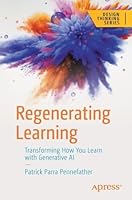
Spatial Analytics with ArcGIS
- Length: 290 pages
- Edition: 1
- Language: English
- Publisher: Packt Publishing
- Publication Date: 2017-04-26
- ISBN-10: B01M3YOPIE
- Sales Rank: #1545403 (See Top 100 Books)
Key Features
- Analyze patterns, clusters, and spatial relationships using ArcGIS tools
- Get up to speed in R programming to create custom tools for analysis
- Sift through tons of crime and real estate data and analyze it using the tools built in the book
Book Description
Spatial statistics has the potential to provide insight that is not otherwise available through traditional GIS tools. This book is designed to introduce you to the use of spatial statistics so you can solve complex geographic analysis.
The book begins by introducing you to the many spatial statistics tools available in ArcGIS. You will learn how to analyze patterns, map clusters, and model spatial relationships with these tools. Further on, you will explore how to extend the spatial statistics tools currently available in ArcGIS, and use the R programming language to create custom tools in ArcGIS through the ArcGIS Bridge using real-world examples.
At the end of the book, you will be presented with two exciting case studies where you will be able to practically apply all your learning to analyze and gain insights into real estate data.
What you will learn
- Get to know how to measure geographic distributions
- Perform clustering analysis including hot spot and outlier analysis
- Conduct data conversion tasks using the Utilities toolset
- Understand how to use the tools provided by the Mapping Clusters toolset in the Spatial Statistics Toolbox
- Get to grips with the basics of R for performing spatial statistical programming
- Create custom ArcGIS tools with R and ArcGIS Bridge
- Understand the application of Spatial Statistics tools and the R programming language through case studies
About the Author
Eric Pimpler is the founder and owner of GeoSpatial Training Services (geospatialtraining.com) and has over 20 years of, experience implementing and teaching GIS solutions using open source technology, ESRI and Google Earth/Maps. Currently, he focuses on ArcGIS scripting with Python and the development of custom ArcGIS Server web and mobile applications using JavaScript.
Eric has a bachelor’s degree in geography from Texas A&M University and a master’s degree in applied geography with a concentration in GIS from Texas State University.
Eric is the author of Programming ArcGIS with Python Cookbook (https://www.packtpub.com/application-development/programming-arcgis-python-cookbook-second-edition), first and second edition, Building Web (https://www.packtpub.com/application-development/building-web-and-mobile-arcgis-server-applications-javascript) and Mobile ArcGIS Server Applications with JavaScript, and ArcGIS Blueprints (https://www.packtpub.com/application-development/arcgis-blueprints), all by Packt Publishing.
Table of Contents
Chapter 1. Introduction To Spatial Statistics In Arcgis And R
Chapter 2. Measuring Geographic Distributions With Arcgis Tools
Chapter 3. Analyzing Patterns With Arcgis Tools
Chapter 4. Mapping Clusters With Arcgis Tools
Chapter 5. Modeling Spatial Relationships With Arcgis Tools
Chapter 6. Working With The Utilities Toolset
Chapter 7. Introduction To The R Programming Language
Chapter 8. Creating Custom Arcgis Tools With Arcgis Bridge And R
Chapter 9. Application Of Spatial Statistics To Crime Analysis
Chapter 10. Application Of Spatial Statistics To Real Estate Analysis

The Complete Engineering Manager: Build High-Performing Engineering Teams for Your Organization






